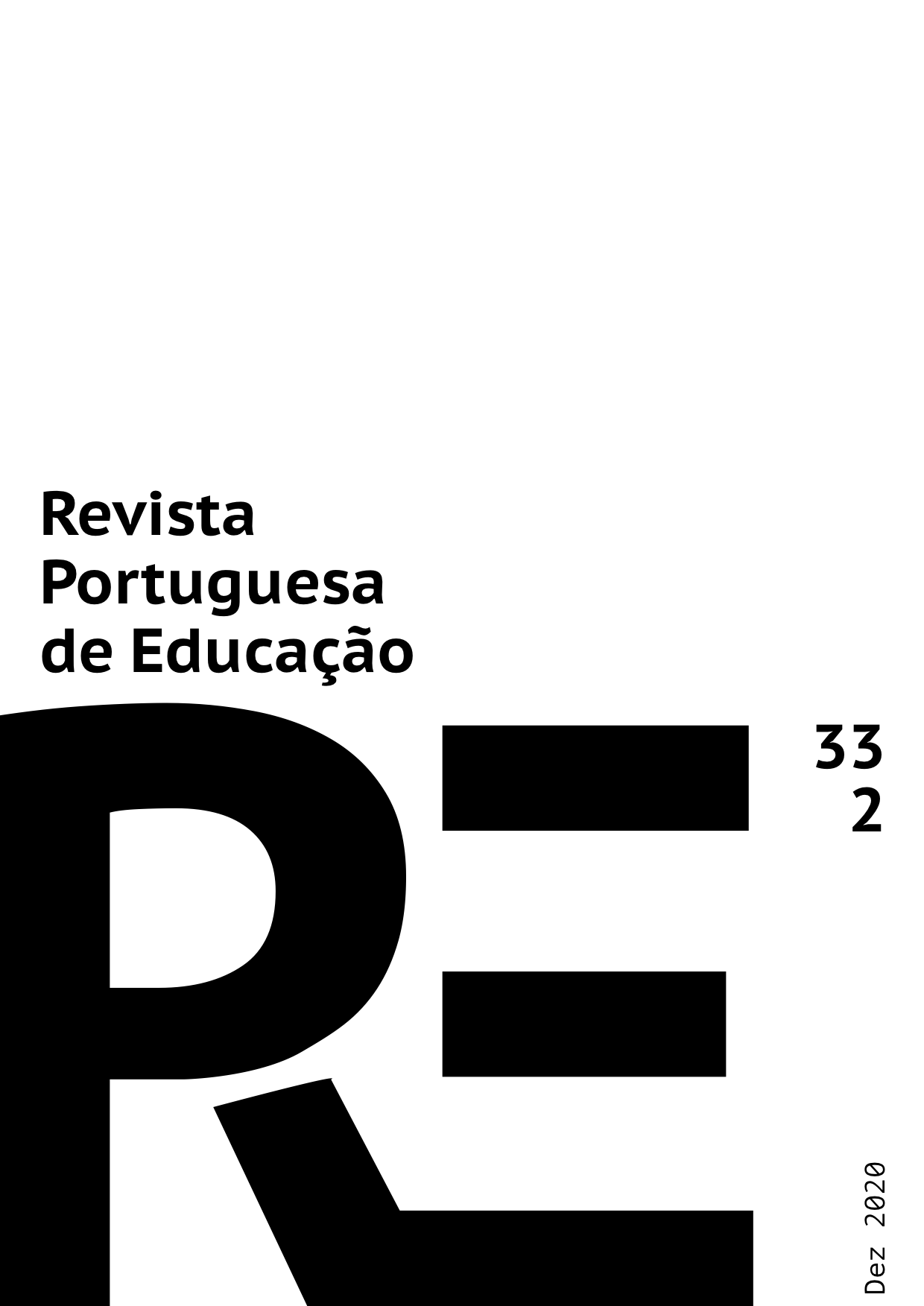Relational dimensions in biographical research
Reflections based on practice
DOI:
https://doi.org/10.21814/rpe.19732Keywords:
Biographical research, Biographical interview, Relational dimension, Adult educatorsAbstract
This article is a reflection regarding the relational dimensions in the biographical research, based on the author's experience in the context of a PhD in Education, in the specialty of Adult Training. We start with the biographical research in the field of Educational Sciences, as well as the role that this methodology plays in the creation of the sense of the self. Afterwards there is a description of the methodological procedures used in the investigation, such as the biographical interviews with 32 adult educators. In a third moment we reflect on the relational dimensions of biographical research, based on the author's experience in conducting biographical interviews.
Downloads
References
Amado, J., & Ferreira, S. (2013). Estudos (auto)biográficos – Histórias de vida. In J. Amado (Coord.), Manual de investigação qualitativa em Educação (pp. 169-185). Coimbra: Imprensa da Universidade de Coimbra.
Bardin, L. (2011). Análise de conteúdo. Lisboa: Edições 70.
Bertaux, D. (2010). L’enquête et ses méthodes. Le récit de vie (3e éd.). Paris: Armand Colin.
Bogdan, R., & Biklen, S. (1994). Investigação qualitativa em educação. Uma introdução à teoria e aos métodos. Porto: Porto Editora.
Bron, A., & Jarvis, P. (2008). Identities of adult educators: Changes in professionality. In E. Nuissl & S. Lattke (Eds.), Qualifying adult learning professionals in Europe (pp. 33-44). Bielefeld: W. Bertelsmann Verlag.
Cavaco, C. (2009). Adultos pouco escolarizados. Políticas e práticas de formação. Lisboa: EDUCA.
Cavaco, C. (2015). Formação de educadores numa perspectiva de construção do saber – contributos da abordagem biográfica. Cad. Cedes, Campinas, 35(95), 75-89.
Chizzotti, A. (2003). A pesquisa qualitativa em ciências humanas e sociais: Evolução e desafios. Revista Portuguesa de Educação, 16(2), 221-236.
Creswell, J. W. (2007). Qualitative inquiry and research design: Choosing among five approaches (2nd ed.). Thousand Oaks: Sage Publications.
Creswell, J. W. (2012). Educational research: Planning, conducting and evaluating quantitative e qualitative research (4th ed.). Boston: Pearson.
Delory-Momberger, C. (2012). Abordagens metodológicas na pesquisa biográfica. Revista Brasileira de Educação, 17(51), 523-536.
Delory-Momberger, C. (2014). De la recherche biographique en éducation. Fondements, méthodes, pratiques. Condé-sur-Noireau: Téraèdre.
Delory-Momberger, C. (2016). A pesquisa biográfica ou a construção compartilhada de um saber do singular. Revista Brasileira de Pesquisa (Auto) Biográfica, Salvador, 1(1), 133-147.
Demazière, D. (2008). L’entretien biographique comme interaction négociations, contre-interprétations, ajustements de sens. Langage & société, 123, 15-35.
Ferrarotti, F. (2010). Sobre a autonomia do método biográfico. In A. Nóvoa & M. Finger (Orgs.), O método (auto)biográfico e a formação (pp. 31- 57). Natal, RN: EDUFRN.
Ferrarotti, F. (2013). Sobre a ciência da incerteza. O método biográfico na investigação em ciências sociais. Mangualde: Edições Pedago/Edições Mulemba.
Giorgi, A. (1997). De la méthode phénoménologique utilisée comme mode de recherche qualitative en sciences humaines: théorie, pratique et évaluation. In J. Poupart et al. (Orgs.), La recherche qualitative. Enjeux épistémologiques et méthodologiques (pp. 341-364). Montréal: Gaëtan Morin éditeur.
Josso, M.-C. (2007). A transformação de si a partir da narração de histórias de vida. Educação, 3(63), 413-438.
Lechner, E. (2014). Pesquisa biográfica junto de imigrantes em Portugal: experiência de pesquisa participativa e relevância analítica dos testemunhos privados. História (São Paulo), 33(1), 97-108. Consultado a 9 de fevereiro de 2020 em: http://www.scielo.br/pdf/his/v33n1/06.pdf
Monteagudo, J. G. (2008/2009). Historias de vida y teorías de la educación: tendiendo puentes. Cuestiones Pedagógicas, 19, 207-232.
Mucchielli, A. (2007). Les processus intellectuels fondamentaux sous-jacents aux techniques et méthodes qualitatives. Recherches Qualitatives, 3, 1-27. Consultado a 2 de fevereiro de 2020 em: http://www.recherche-qualitative.qc.ca/documents/files/revue/hors_serie/hors_serie_v3/MucchielliFINAL2.pdf
Sociedade Portuguesa de Ciências da Educação (2014). Instrumento de regulação ético-deontológica. Carta Ética. SPCE. Consultado a 2 de fevereiro de 2020 em: http://www.spce.org.pt/regulacaoeticodeontologia.html
Villers, G. (2009). Identité versus subjectivité dans le récit autobiographique et en formation d’adultes. In J-M. Barbier, E. Bourgeois, G. Chapelle, & J-C. Ruano-Borbalan (Dir), Encyclopédie de la formation (pp. 83-93). Paris: Presses Universitaires de France.
Downloads
Published
How to Cite
Issue
Section
License
1. The authors preserve their authorship and grant the Portuguese Journal of Education the right to the first publication. The work is licensed under Creative Commons Attribution License that allows sharing the work with the acknowledgment of initial authorship and publication in this Journal.
2. The authors have the right to take additional contracts separately, for non-exclusive distribution of the published version of their work (e.g. to deposit in an institutional repository or as a book chapter), acknowledging the initial authorship and publication in this Journal.
3. The authors have the permission and are stimulated to post their work online (e.g. in an institutional repository or on their personal website). They can do this at any phase of the editorial process, as it may generate productive changes, as well as increase impact and article citation (see The Open Citation Project).
The work is licensed under Attribution-ShareAlike 4.0 International (CC BY-SA 4.0)





















